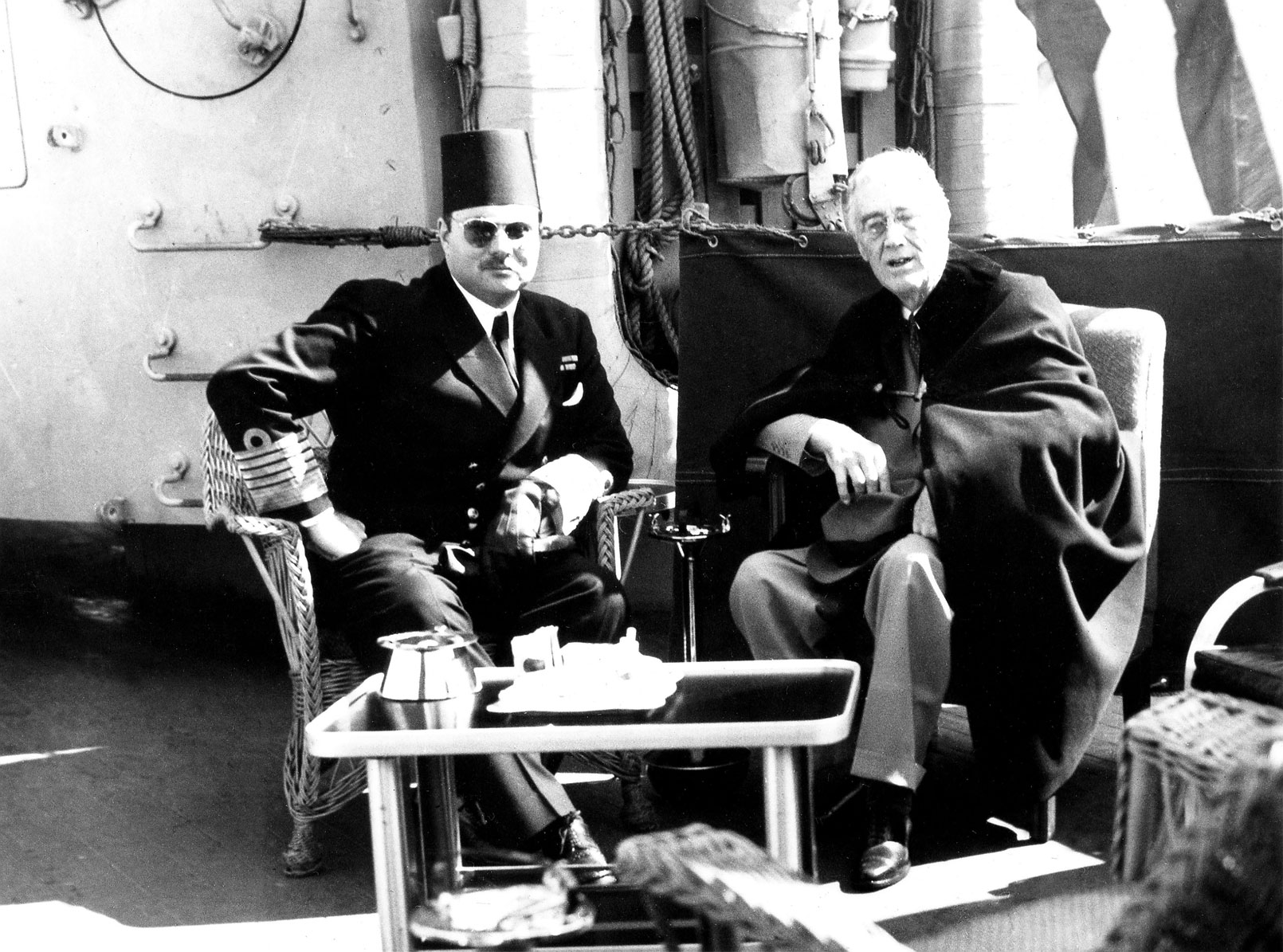No single monarch or tyrant rules forever. But the survival of the institution a ruler represents is often in question after the leader is buried. Eternal leader Kim Il-Sung very much lives on in the regime of terror perpetuated by his descendants. Alternatively, you hear little these days of the exploits of Queen Anna Jagiellonka, the former leader of the Polish-Lithuanian commonwealth.
The survival of the British monarchy as an institution after the death of Queen Elizabeth II is a question that will continue to be posed, given her enduring and larger-than-life persona that is inextricably tied with the institution she led. But there is a harkening for the era of kings and queens in some corners of the Arab world that lies in opposition to the republican instinct that such an era of hereditary rule and primogeniture belongs in the dustbin of history.
As in the rest of the world, the queen’s death has garnered great interest and breathless coverage in the region, for many reasons that include the sense of spectacle, Britain’s colonial history in the Middle East, the fact that the Gulf monarchs who own most of the popular pan-Arab TV stations appeared to have a genuine rapport and reverence toward the queen (at least as far as can be gleaned from the pageantry of her official visits to the region) and perhaps because the monarchy is one of the few Western institutions we can identify with.
There is also the resurgence of the weakly supported theory that Elizabeth was a descendant of the Prophet Muhammad — whether it is true or not is immaterial, as long as it is widely enough assumed to be true that it creates a connection. In Iraq, few took the alleged lineage to Muhammad seriously beyond generated memes. However, the late queen’s handling of Britain’s declining role in the world, or the post-empire era, has become an interesting discussion.
The manner in which the monarchy became largely symbolic in policy making is for many Iraqis a case study in civility. On July 14 ,1958, the monarchy was overthrown in Iraq in a brutal way that most Iraqis including those who oppose hereditary rule are not proud of. How the late queen handled the decline in the relevance of her institution while maintaining her grace is considered admirable.
But there is also a sense of ruefulness at times about such an institution and a bygone era it represents that nobody really remembers but surely must have been an improvement on today’s regional malaise. After all, if we are to be led by absolute rulers, why not also have the prestige and pageantry?
The Egyptian monarchy is a case in point. There are several Facebook pages, for example, that purport to be the official pages of King Faruk, Egypt’s last king, who was deposed in the 1952 Free Officers coup led by Gamal Abdel Nasser and Muhammad Naguib. The most popular page has 5.4 million followers, while others have tens or hundreds of thousands of followers. Their content usually runs the gamut of historical images and snippets of history to apocryphal sayings, royalist sentiment and nostalgia, or taking pot shots at Nasser and his defeat in the 1967 war.
One common theme of those fan pages is that things were better under the monarchy — a debatable proposition but one that the majority of the followers of those pages are unlikely to have based on living memory. It is not dissimilar to the polished view of history offered through Turkish soap operas of the era of Suleyman the Magnificent or the occasional images that pop up on social media of life in Tehran and Kabul before the Islamic republic and emirate of women in mini-skirts — even if things weren’t better, at least they looked better. One King Faruk page bears an apocryphal quote that he is supposed to have said on the eve of the coup: that he would rather abdicate the throne than have a single Egyptian spill blood on his account (notwithstanding that his own neck was on the line if he didn’t step down). Another has an image supposedly of local Gulf rulers paying tribute to him as the king of the most powerful state in the region, a contrast to Egypt begging today’s Gulf rulers for financial aid.
To be clear, there are two instincts at play here, distinct but entwined. One is the desire for strongman rule, which isn’t unique to Arabs, given the propensity Western publics also have for electing far-right autocrats. It symbolizes a desire for stability as simply a better alternative to the current reality of chaos, impoverishment and civil war.
The other represents a harkening for the perceived glory of the past and the prestige associated with it — a sense that it was a period of high culture, refined tastes and a prominent place in the world. A sense of magic. There is an undeniable nostalgia across the Arab world for an era most never experienced. Stability, security, no religious extremism and the respect of the international community are absent today. And that is perhaps what the harkening for that era hints at.




